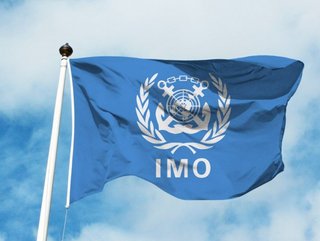IMO talks target landmark GHG ships emissions deal

The world’s leading maritime body has opened pivotal week-long talks to find a way forward on greenhouse gas (GHG) emissions in the industry.
The 80th session of the Marine Environment Protection Committee (MEPC) takes place from today (July 3) and will run until July 7. The talks are being held at the London HQ of the International Maritime Organisation (IMO).
Top of the agenda is the expected adoption by the IMO of an upgraded greenhouse gas strategy. The talks involve delegates from 175 shipping countries, who are seeking to agree on a new timeline for decarbonising their industry.
The IMO is a specialised agency of the United Nations, and is responsible for regulating shipping. The MEPC, meanwhile, addresses environmental issues under IMO’s remit, including GHG emissions from ships.
Global shipping needs ambitious GHG plans
The IMO’s revised GHG strategy contains concrete reduction targets, and is expected to outline a raft of technical and economic measures designed to set global shipping on an ambitious path towards phasing out GHG emissions.
The shipping industry is under growing pressure to dramatically curb planet-warming emissions.
An estimated 90% of the products and goods the world consumes travel by ship, and today’s vessels frequently burn highly polluting heavy fuel-oils – also known as residual fuels – that have a high sulphur content. These contribute as much as 3% of the world's global carbon dioxide emissions , which is roughly the same volume of CO2 in a single year as Germany produces.
This could grow by as much as half again by the middle of this century if strong action isn't taken, experts warn. Despite all this, maritime shipping is the biggest global sector without a goal for cutting emissions to net zero.
The BBC reports climate campaigners as saying it would be the climate "deal of the decade" if the IMO deal is agreed.
For years, the shipping industry, governments and environmental groups have struggled to make any headway on making the transport of goods by sea less environmentally destructive.
The BBC also comments that the maritime emissions issue is so thorny it was not included as part of the 2015 Paris climate agreement to tackle the causes of global warming.
Futile attempts to curb sea shipping emissions
Previous attempts to curb maritime emissions through the IMO have been scuppered by countries such as China, India and Saudi Arabia, whose preference is to protect domestic shipping interests.
Currently, the shipping industry's plans involve merely halving emissions by 2050, which scientists say is not in keeping with the Paris climate agreement.
Campaigners are demanding a much tougher target, seeking a reduction of around half by 2030 and a net-zero goal for 2050. Some are calling for full decarbonisation by 2040, a target that the world's second largest container shipping line, Maersk, has set as its own zero emissions goal.
"If member states get this right, they can set the shipping sector in line to meet the Paris temperature targets and promote investment in green technologies that will completely transform the sector," the BBC reported UN Climate Foundation Ocean & Climate Director Kerrlene Wills as saying.
"It would be the climate agreement not just of the year but probably of the decade," the Clean Shipping Coalition’s John Maggs told reporters at the talks.






